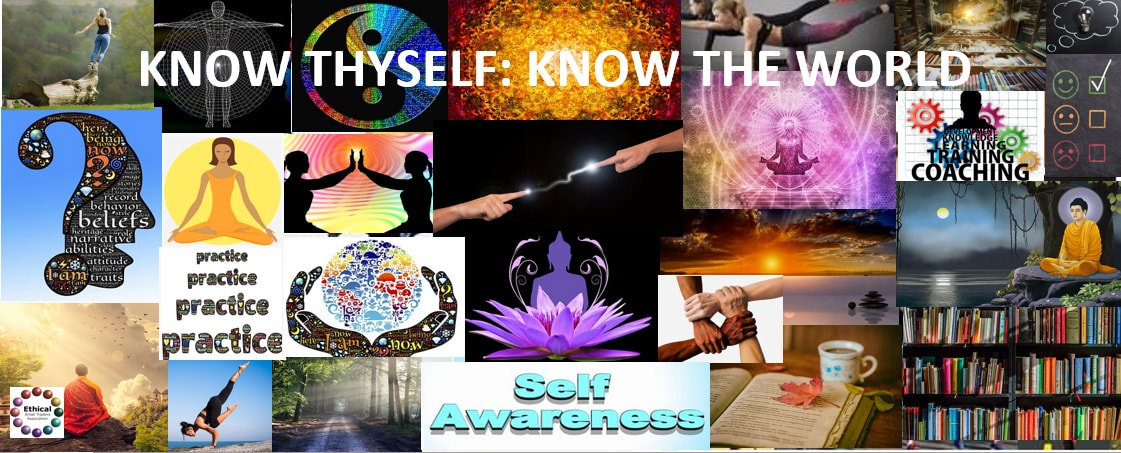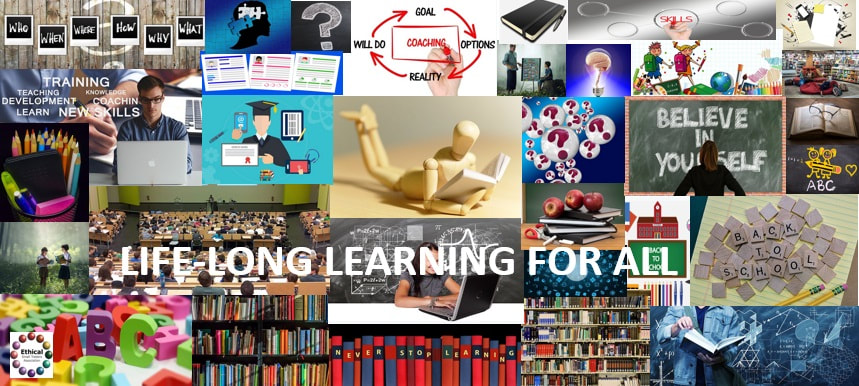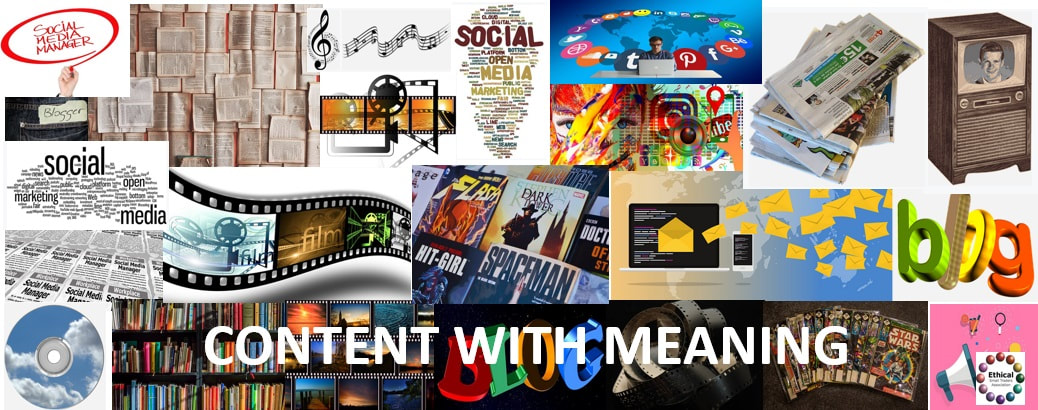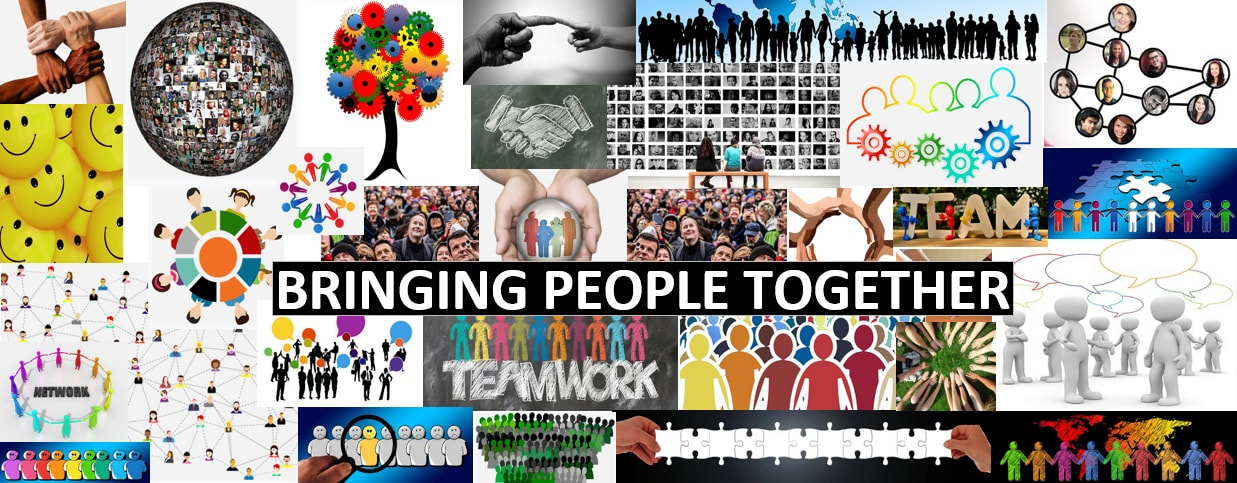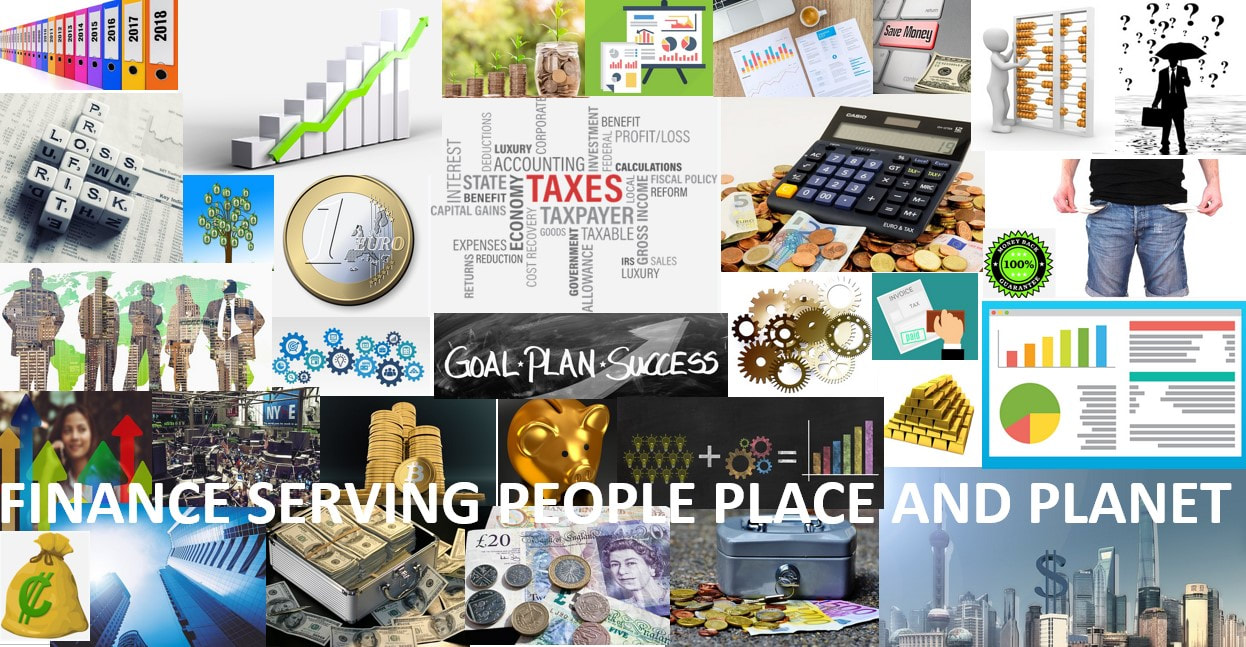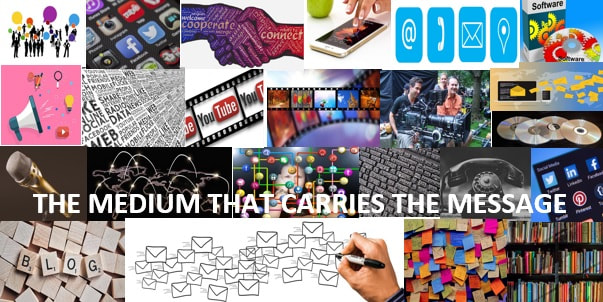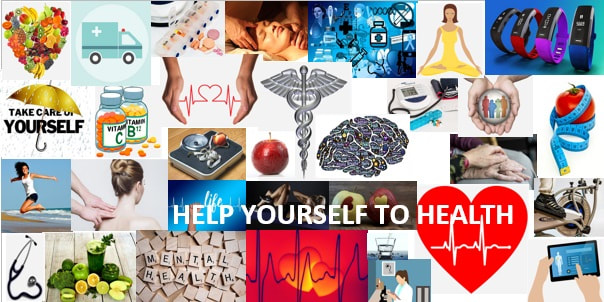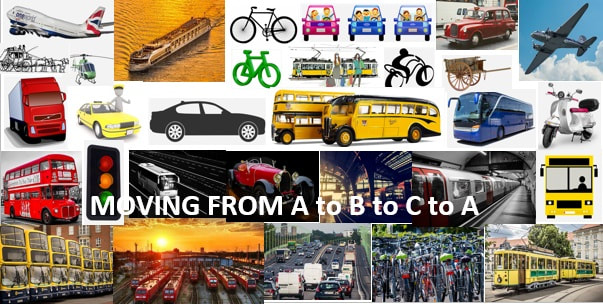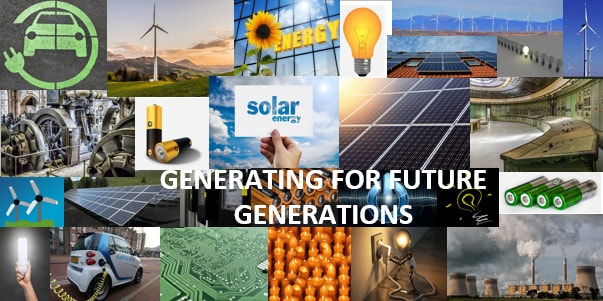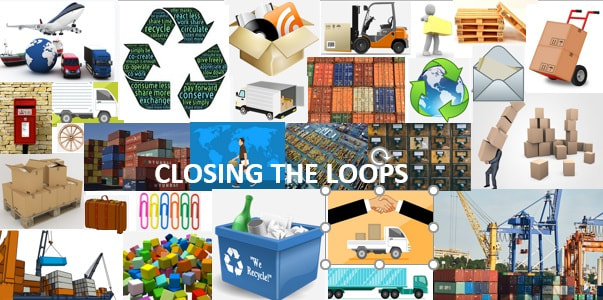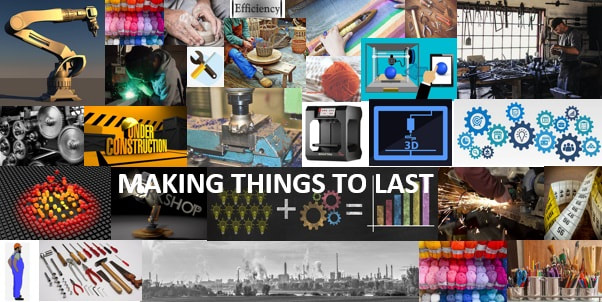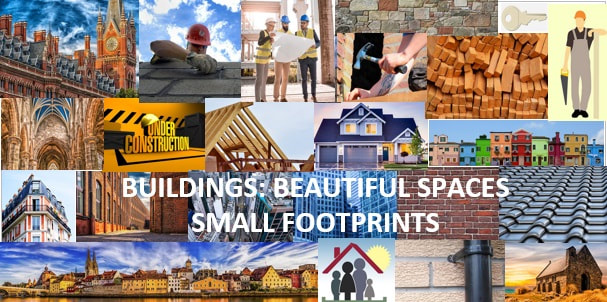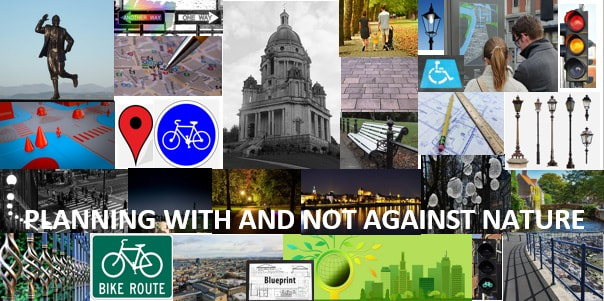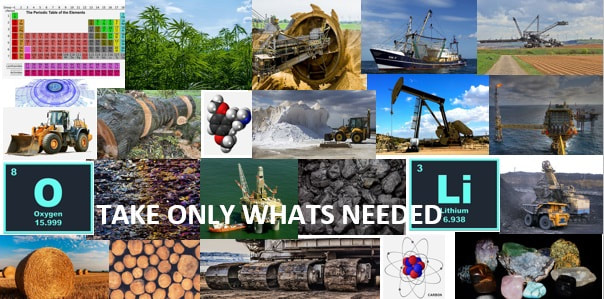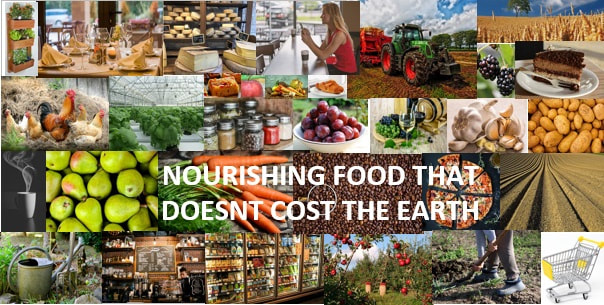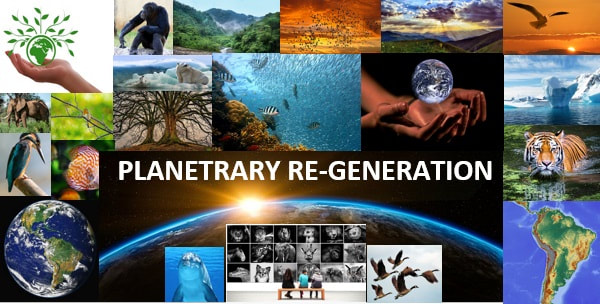CURRENT TRENDS DURING COVID 19 - BY SECTOR
(draft 1: 20 April 20)
(draft 1: 20 April 20)
Sector One: Personal Inner Development
Know Thyself: Know the World
Know Thyself: Know the World
S1: Personal Inner Development
- Personal inner development and the cultivation of inner psychological resilience has never been more important or necessary. In the face of major crisis and disruption to normal habits and routines we tend to inwardly awaken, as the metaphorical cold water to our sense of self shocks us into psychological sharp relief.
- The whole human race is traumatised by the Covid 19 epidemic. Some, like health personnel and already vulnerable groups, more than others. It is making all of us appreciate the fragility of life and being grounded for a significant period of time is giving many people time to reflect. It is, therefore is one of those historical moments when we feel more compulsion to ask the big questions regarding personal and universal meaning and to develop inner tools for creative resilience.
- This is a growing and emerging sector: hardly yet recognised by the value system of our increasingly dis-integrating old militarised industrial system, in which the intrinsic value of the individual is only measured against externally agreed growth and development goals, rather than calibrated with ones own personal inner value system.
- Having no immediately obvious economic value, intrinsic personal self-development for its own sake does not yet have a price point and, in many respects, it would be counter-productive to give it one, especially when the main measurement of economic success and value remains GDP. Attempts are being made to establish new value-capturing metrics for wellbeing, but these are not yet adopted as main-stream.
- The current Covid crisis is precipitating lots of soul-searching which, in a literal sense creates a strong latent 'demand' for 'inner-capacity workers' (to coin a phrase). The issue will be whether, during this "Covid time" will translate into a price-point or alternative value transmission systems for nascent workers in this newly emerging sector.
- (Updated 21april20)
S2: Arts and Creativity
The arts in their traditional form is taking a big hit and is one of the sectors that is suffering badly, relying as it does, in person to person and group interaction in face to face settings. But the arts are, by their very nature, not 'traditional'. Art challenges us to see the world in ever new ways and seeds the creation of new cultural perspectives and so, being adaptive by nature, creative artists will rise to the challenge and use all the medium at their disposal to give interpretive meaning to the 'new reality' we find ourselves in. Do we really want to go back to "business as usual" when this is all over? Or are we up to the challenge of creating something better for people, place and planet out of 'The Great Disruption'? We need our creatives to help us forge a new narrative.
The arts in their traditional form is taking a big hit and is one of the sectors that is suffering badly, relying as it does, in person to person and group interaction in face to face settings. But the arts are, by their very nature, not 'traditional'. Art challenges us to see the world in ever new ways and seeds the creation of new cultural perspectives and so, being adaptive by nature, creative artists will rise to the challenge and use all the medium at their disposal to give interpretive meaning to the 'new reality' we find ourselves in. Do we really want to go back to "business as usual" when this is all over? Or are we up to the challenge of creating something better for people, place and planet out of 'The Great Disruption'? We need our creatives to help us forge a new narrative.
- S3: Education, Skills and Training
- Formal education has taken a big hit. Schools and universities are closed and are trying to find remote ways of educating. Children are missing out on the vital socialisation process that comes from being together, which will have deep psychological impacts. But maybe this is a chance to re-evaluate the purpose of education and find new ways of delivery. Will we see more outdoors-based education? And, if so, where will that take place? Will we see a shift away from fact and memory-rote learning (that’s why we have Google) to a more process and meaning driven approach? Will education for life, flexibility and personal resilience replace education for jobs? And what about education for living and working more sustainably and a more comprehensive education about the planets ‘operating systems’ and our contextual place within them? How does the children’s climate emergency protest movement fit into the rapidly evolving new social context precipitated by Covid 19? Adult education and training will be far more flexible and adaptable, as the already existing trend to online learning platforms accelerates. No doubt this will now be extended into school and university learning. What effect will long-term social distancing trends have on the creation of the large centralised university campus model? In parallel with current massive global re-calibrating of social and economic priorities, is now the time for a complete re-thing about the nature and purpose of education? In short; educating for what?
- Formal education has taken a big hit. Schools and universities are closed and are trying to find remote ways of educating. Children are missing out on the vital socialisation process that comes from being together, which will have deep psychological impacts. But maybe this is a chance to re-evaluate the purpose of education and find new ways of delivery. Will we see more outdoors-based education? And, if so, where will that take place? Will we see a shift away from fact and memory-rote learning (that’s why we have Google) to a more process and meaning driven approach? Will education for life, flexibility and personal resilience replace education for jobs? And what about education for living and working more sustainably and a more comprehensive education about the planets ‘operating systems’ and our contextual place within them? How does the children’s climate emergency protest movement fit into the rapidly evolving new social context precipitated by Covid 19? Adult education and training will be far more flexible and adaptable, as the already existing trend to online learning platforms accelerates. No doubt this will now be extended into school and university learning. What effect will long-term social distancing trends have on the creation of the large centralised university campus model? In parallel with current massive global re-calibrating of social and economic priorities, is now the time for a complete re-thing about the nature and purpose of education? In short; educating for what?
S4: Communication (Content)
Marketing and promotion has taken a big hit, with the precipitous downturn in the purchasing economy. Marketing and branding agencies have lost clients overnight in whole sectors, such as travel and retail. But, as new businesses, products and services are created, particularly in the digital sector, marketeers will adjust. There is also a wiser narrative to be told about the nature of change that is taking place itself. Narrative writers and content producers, researchers and journalists, like those in the arts, have a new and big unfolding story to tell. Will media creators now turn their attention to help create new narratives and new messages that accelerate the necessary transition to a sustainable 'operating system'? And if so, where will the price-point be located?
Marketing and promotion has taken a big hit, with the precipitous downturn in the purchasing economy. Marketing and branding agencies have lost clients overnight in whole sectors, such as travel and retail. But, as new businesses, products and services are created, particularly in the digital sector, marketeers will adjust. There is also a wiser narrative to be told about the nature of change that is taking place itself. Narrative writers and content producers, researchers and journalists, like those in the arts, have a new and big unfolding story to tell. Will media creators now turn their attention to help create new narratives and new messages that accelerate the necessary transition to a sustainable 'operating system'? And if so, where will the price-point be located?
S5: Community-building and Social Support
Organisations in the third sector have taken a massive hit. Ten years of austerity in the UK has already starved vital front-line organisations and charities of much needed funds, whilst their workloads have increased, as more and more people are pushed into poverty. Now this trend has been massively accelerated. In the absence of any meaningful input from the state, which has been concentrating on the fiscal aspects of its remit, It is the tireless and compassionate work of people in the Third Sector who have been holding the fabric of society together, along with local governments. There is a lot of creativity and ingenuity in this sector and we have seen that in the massive and almost instant creation of local support networks for the delivery of vital supplies such as food and medicines. As a nation we seem to be re-discovering the importance of community cohesion and solidarity which, in a crisis such as the one we are in, is far more useful and valuable than the promotion of the profit motive. There is strong hope that, collectively, local communities and vital local organisational initiatives can help write a new working social contract and a set of social practices that helps bring about fairer and more localised system of living and being with each other.
Organisations in the third sector have taken a massive hit. Ten years of austerity in the UK has already starved vital front-line organisations and charities of much needed funds, whilst their workloads have increased, as more and more people are pushed into poverty. Now this trend has been massively accelerated. In the absence of any meaningful input from the state, which has been concentrating on the fiscal aspects of its remit, It is the tireless and compassionate work of people in the Third Sector who have been holding the fabric of society together, along with local governments. There is a lot of creativity and ingenuity in this sector and we have seen that in the massive and almost instant creation of local support networks for the delivery of vital supplies such as food and medicines. As a nation we seem to be re-discovering the importance of community cohesion and solidarity which, in a crisis such as the one we are in, is far more useful and valuable than the promotion of the profit motive. There is strong hope that, collectively, local communities and vital local organisational initiatives can help write a new working social contract and a set of social practices that helps bring about fairer and more localised system of living and being with each other.
- S6: Administrative and Operational Support
- All administrative agencies and operational management is currently in overdrive, particularly among public sector and large administrative bodies that are critical to the operation of the countries infrastructure. But the same is true across all sectors, types of business and scale, as every operational process is either turned inside out, on its head or has to cope with extra load on its systems. On a operational basis the most radical shift is out of the office and into home-working, accelerating a trend that was already partially underway. another massive change is a shift of perceptual emphasis as to what is a critical system, with health, infrastructure maintenance and the distribution of food and other items now being seen as "key". Operational advice into how to weather the Covid crisis and how to re-structure is a big growth area for consultants and there is a move for people to position themselves as critical super-networkers and information providers, mostly out of altruism and a desire to serve the common good but also to best position themselves and 'go to's' moving forward. Going forward there will be a strong need to develop new systems and operational procedures and processes as we continue to navigate this massive transition.
- All administrative agencies and operational management is currently in overdrive, particularly among public sector and large administrative bodies that are critical to the operation of the countries infrastructure. But the same is true across all sectors, types of business and scale, as every operational process is either turned inside out, on its head or has to cope with extra load on its systems. On a operational basis the most radical shift is out of the office and into home-working, accelerating a trend that was already partially underway. another massive change is a shift of perceptual emphasis as to what is a critical system, with health, infrastructure maintenance and the distribution of food and other items now being seen as "key". Operational advice into how to weather the Covid crisis and how to re-structure is a big growth area for consultants and there is a move for people to position themselves as critical super-networkers and information providers, mostly out of altruism and a desire to serve the common good but also to best position themselves and 'go to's' moving forward. Going forward there will be a strong need to develop new systems and operational procedures and processes as we continue to navigate this massive transition.
S7: Financial Services
The sector that underpins the entire economy, finance has undergone a massive transformation. The economy in much of the world, including the UK, had been put on hold and the daily financial flows that come from the millions of daily transactions between businesses, individuals and institutions have reduced dramatically. In order to stave off mass destitution the UK government and the Bank of England are pumping vast amounts of currency and liquidity into the accounts of businesses and individuals, either directly or via the banking system. Various local authorities have also used their discretion and resources to protect their own local economies. Those in the financial service industry, including accountants, wealth managers and those in the legal profession are experiencing a huge increase in workload, interpreting, explaining, supporting and advising their clients and members of the wider community beyond their own client base. Everything connected to finance, wealth and resources is and will continue to undergo massive shifts and long-term transformation both during and after the crisis.
The sector that underpins the entire economy, finance has undergone a massive transformation. The economy in much of the world, including the UK, had been put on hold and the daily financial flows that come from the millions of daily transactions between businesses, individuals and institutions have reduced dramatically. In order to stave off mass destitution the UK government and the Bank of England are pumping vast amounts of currency and liquidity into the accounts of businesses and individuals, either directly or via the banking system. Various local authorities have also used their discretion and resources to protect their own local economies. Those in the financial service industry, including accountants, wealth managers and those in the legal profession are experiencing a huge increase in workload, interpreting, explaining, supporting and advising their clients and members of the wider community beyond their own client base. Everything connected to finance, wealth and resources is and will continue to undergo massive shifts and long-term transformation both during and after the crisis.
- S8: Communication Infrastructure
- Many of the traditional ways and pathways for creating media content are no longer possible. The opportunities for location shooting and recording are greatly reduced as are the occasions to be recorded and documented, as we no longer have large gatherings of people anywhere. But the means for creating media still exist and are being used in new and creative ways to keep creating material for broadcast and consumption. Digital platforms and applications are witnessing very strong growth for work, meetings, entertainment and as productive operational channels to substitute for the inability for geographically proximate team-working. Using digital platforms of communication is, for most people now the ONLY way to stay connected with others, which is leading to a massive and overnight trend towards adoption of digitally-based media technologies.
- Many of the traditional ways and pathways for creating media content are no longer possible. The opportunities for location shooting and recording are greatly reduced as are the occasions to be recorded and documented, as we no longer have large gatherings of people anywhere. But the means for creating media still exist and are being used in new and creative ways to keep creating material for broadcast and consumption. Digital platforms and applications are witnessing very strong growth for work, meetings, entertainment and as productive operational channels to substitute for the inability for geographically proximate team-working. Using digital platforms of communication is, for most people now the ONLY way to stay connected with others, which is leading to a massive and overnight trend towards adoption of digitally-based media technologies.
S9: Digital Infrastructure
The digital sector is seeing a massive spike in demand, as people turn en-mass to digital platforms for work and recreation. Gradual trends that have been in train for some time such as home shopping and homeworking have now been massively accelerated overnight. Media is the other big adopter, as programs that would have required a studio presence are now being stitched together via social media. Along with climate change digitisation is the largest economic and social disruptor to the way we work, manufacture, play and obtain information. The current level of digital infrastructure has ensured that some semblance of normal operations can continue whilst half the world’s population are effectively confined to their homes. This is a feat that would have been impossible only ten years ago and it is highly likely that programming teams who are able to quickly produce 'apps' and platforms that help us live and operate in a post Covid world will be in high demand. One example is the speed with which the app for coordinating the 700,000 NHS volunteer 'army' has been developed.
The digital sector is seeing a massive spike in demand, as people turn en-mass to digital platforms for work and recreation. Gradual trends that have been in train for some time such as home shopping and homeworking have now been massively accelerated overnight. Media is the other big adopter, as programs that would have required a studio presence are now being stitched together via social media. Along with climate change digitisation is the largest economic and social disruptor to the way we work, manufacture, play and obtain information. The current level of digital infrastructure has ensured that some semblance of normal operations can continue whilst half the world’s population are effectively confined to their homes. This is a feat that would have been impossible only ten years ago and it is highly likely that programming teams who are able to quickly produce 'apps' and platforms that help us live and operate in a post Covid world will be in high demand. One example is the speed with which the app for coordinating the 700,000 NHS volunteer 'army' has been developed.
S9: Digital Infrastructure
The digital sector is seeing a massive spike in demand, as people turn en-mass to digital platforms for work and recreation. Gradual trends that have been in train for some time such as home shopping and homeworking have now been massively accelerated overnight. Media is the other big adopter, as programs that would have required a studio presence are now being stitched together via social media. Along with climate change digitisation is the largest economic and social disruptor to the way we work, manufacture, play and obtain information. The current level of digital infrastructure has ensured that some semblance of normal operations can continue whilst half the world’s population are effectively confined to their homes. This is a feat that would have been impossible only ten years ago and it is highly likely that programming teams who are able to quickly produce 'apps' and platforms that help us live and operate in a post Covid world will be in high demand. One example is the speed with which the app for coordinating the 700,000 NHS volunteer 'army' has been developed.
The digital sector is seeing a massive spike in demand, as people turn en-mass to digital platforms for work and recreation. Gradual trends that have been in train for some time such as home shopping and homeworking have now been massively accelerated overnight. Media is the other big adopter, as programs that would have required a studio presence are now being stitched together via social media. Along with climate change digitisation is the largest economic and social disruptor to the way we work, manufacture, play and obtain information. The current level of digital infrastructure has ensured that some semblance of normal operations can continue whilst half the world’s population are effectively confined to their homes. This is a feat that would have been impossible only ten years ago and it is highly likely that programming teams who are able to quickly produce 'apps' and platforms that help us live and operate in a post Covid world will be in high demand. One example is the speed with which the app for coordinating the 700,000 NHS volunteer 'army' has been developed.
S11: Transport
The transport sector has been badly affected by the lockdown, mass-repatriation of stranded citizens and the closing of international borders. Globally the airline industry has been all but closed down and is unlikely to recover in its current form. In the UK car journeys are down by c70% and car sales are down, the entire franchised rail system had been effectively re-nationalised with a stripped-down service for key workers. Bus companies will have seen revenues fall dramatically and there is a big question over how and if services will resume. The big question is how much the habits of home working, eating and entertainment will stick. New possibilities have opened up to compete with the need to travel to get things done with potential for time, money and resources saved. This may have a long-term post-Covid effect in reducing certain types of journeys. A time period of at least a year has been mooted for full international movement, which is bound to have a dampening effect on international travel and holidays for a long time. There has also been an upsurge in walking and bicycle use during the lock-down, which could have a legacy effect in the way people chose to travel about. The psychological effects of the lock-down my also lead some people to question the habit of trying to get from one place to another as fast as possible. Combined with other variables, this might lead to long term changes in travelling patterns and habits. In the context of responding to climate change, transport is one of the four key areas that have to see considerable change. Some of the desired changes are being forced upon us by the Covid crisis and are showing how much of society can continue to function without unnecessary travel. This is bound to inform the narrative on how we shift to a more sustainable transportation future. The road haulage industry is covered in Sector13.
The transport sector has been badly affected by the lockdown, mass-repatriation of stranded citizens and the closing of international borders. Globally the airline industry has been all but closed down and is unlikely to recover in its current form. In the UK car journeys are down by c70% and car sales are down, the entire franchised rail system had been effectively re-nationalised with a stripped-down service for key workers. Bus companies will have seen revenues fall dramatically and there is a big question over how and if services will resume. The big question is how much the habits of home working, eating and entertainment will stick. New possibilities have opened up to compete with the need to travel to get things done with potential for time, money and resources saved. This may have a long-term post-Covid effect in reducing certain types of journeys. A time period of at least a year has been mooted for full international movement, which is bound to have a dampening effect on international travel and holidays for a long time. There has also been an upsurge in walking and bicycle use during the lock-down, which could have a legacy effect in the way people chose to travel about. The psychological effects of the lock-down my also lead some people to question the habit of trying to get from one place to another as fast as possible. Combined with other variables, this might lead to long term changes in travelling patterns and habits. In the context of responding to climate change, transport is one of the four key areas that have to see considerable change. Some of the desired changes are being forced upon us by the Covid crisis and are showing how much of society can continue to function without unnecessary travel. This is bound to inform the narrative on how we shift to a more sustainable transportation future. The road haulage industry is covered in Sector13.
S12: Energy
The crisis is having a big effect upon the fossil fuel industry, which normally supplies fuel to a global transport fleet that is largely parked up. The general slow-down in economic activity is also having an impact, this might help to accelerate the trend towards renewables. The fossil fuel industry is subject to increasing extraction costs, which are largely absent from renewables, whose energy sources are not hard to identify. Energy is one of the four key areas where big changes need to be made to mitigate the effects of climate change. Whilst domestic energy consumption with have risen, it will be offset by falls in industrial and office energy use. Homes are doubling as offices and studios but only need to be heated once. The trend and shift towards digital platforms and home deliveries may stimulate a long-term trend that requires less energy consumption and generation overall.
The crisis is having a big effect upon the fossil fuel industry, which normally supplies fuel to a global transport fleet that is largely parked up. The general slow-down in economic activity is also having an impact, this might help to accelerate the trend towards renewables. The fossil fuel industry is subject to increasing extraction costs, which are largely absent from renewables, whose energy sources are not hard to identify. Energy is one of the four key areas where big changes need to be made to mitigate the effects of climate change. Whilst domestic energy consumption with have risen, it will be offset by falls in industrial and office energy use. Homes are doubling as offices and studios but only need to be heated once. The trend and shift towards digital platforms and home deliveries may stimulate a long-term trend that requires less energy consumption and generation overall.
S13: The Circular Economy
Moving things around, assembling and disassembling forms the core of this nascent sector. There will be reductions in demand in some areas (clothes for instance) and increases in others (food and health equipment). The road haulage industry is the vital artery for moving goods and components and is currently stressed due to operating under capacity on what are already existing tight margins. Doorstep deliveries have increased dramatically and are supply is outstripping demand accelerating another long term-trend. The crisis will also have a big impact on extended de-fragmented supply chains and just-in time component delivery. Post crisis there will be more emphasis on national, regional and local resilience and flexibility. This should support attempts to build sustainable circular supply and waste chains and this may well be a big growth area in the future.
Moving things around, assembling and disassembling forms the core of this nascent sector. There will be reductions in demand in some areas (clothes for instance) and increases in others (food and health equipment). The road haulage industry is the vital artery for moving goods and components and is currently stressed due to operating under capacity on what are already existing tight margins. Doorstep deliveries have increased dramatically and are supply is outstripping demand accelerating another long term-trend. The crisis will also have a big impact on extended de-fragmented supply chains and just-in time component delivery. Post crisis there will be more emphasis on national, regional and local resilience and flexibility. This should support attempts to build sustainable circular supply and waste chains and this may well be a big growth area in the future.
S14: Household Items & Finished Products
The demand for products is not diminished, although there has been a massive reduction on some types of items. All non-essential retail outlets are closed but supplies are still purchasable from the likes of Amazon and other online shopping and home delivery outlets. Those retail outlets that rely on direct footfall have suffered badly and will continue to suffer during any social distancing measures. Clothing is one sub-sector that will be hit hard whilst digital and communication devices will be in greater demand.
The demand for products is not diminished, although there has been a massive reduction on some types of items. All non-essential retail outlets are closed but supplies are still purchasable from the likes of Amazon and other online shopping and home delivery outlets. Those retail outlets that rely on direct footfall have suffered badly and will continue to suffer during any social distancing measures. Clothing is one sub-sector that will be hit hard whilst digital and communication devices will be in greater demand.
S15: Manufacturing
Car manufacturing has been hit badly and other areas will be hit but the long-term prospects for home-based manufacturing capacity is likely to be good, as more local resilience is sought. Some manufacturers are turning their attention to the production of medical equipment that is urgently needed but in short supply and a flexible local manufacturing capacity may be something to be valued and supported in the future. The advent of 3D printing should also see accelerated growth and development, especially for flexible bespoke local production. The creative re-use of more locally available materials may also be something that is looked at. Almost overnight, the UK has shifted from a laze-fare production economy based on price, stimulated demand and profit to a more command and demand driven system where production capacity is placed in the service of meeting agreed community needs.
Car manufacturing has been hit badly and other areas will be hit but the long-term prospects for home-based manufacturing capacity is likely to be good, as more local resilience is sought. Some manufacturers are turning their attention to the production of medical equipment that is urgently needed but in short supply and a flexible local manufacturing capacity may be something to be valued and supported in the future. The advent of 3D printing should also see accelerated growth and development, especially for flexible bespoke local production. The creative re-use of more locally available materials may also be something that is looked at. Almost overnight, the UK has shifted from a laze-fare production economy based on price, stimulated demand and profit to a more command and demand driven system where production capacity is placed in the service of meeting agreed community needs.
S16: Buildings
Property sales are effectively on hold during the crisis, which will affect estate agents. Public buildings, museums, offices and other locations will be currently empty. There may be questions post Covid as to the need for so much dedicated go-to space. It is also unlikely that entertainment, events, pubs, restaurants and cafes will be functioning for a long time, as all such social activities are both optional and most susceptible to spreading the virus. Building projects are still ongoing in the UK, although DIY is supressed. Even though householders have time for DIY, they will not be able to access materials. Due to the re-calibration regarding homeworking, demand for office space and other forms of working environments might be supressed long-term post Covid. Many people will be falling into rent and mortgage arears and the already existing chronic disconnect between property prices and rents and incomes may be affected in ways that are difficult to anticipate at this stage.
Property sales are effectively on hold during the crisis, which will affect estate agents. Public buildings, museums, offices and other locations will be currently empty. There may be questions post Covid as to the need for so much dedicated go-to space. It is also unlikely that entertainment, events, pubs, restaurants and cafes will be functioning for a long time, as all such social activities are both optional and most susceptible to spreading the virus. Building projects are still ongoing in the UK, although DIY is supressed. Even though householders have time for DIY, they will not be able to access materials. Due to the re-calibration regarding homeworking, demand for office space and other forms of working environments might be supressed long-term post Covid. Many people will be falling into rent and mortgage arears and the already existing chronic disconnect between property prices and rents and incomes may be affected in ways that are difficult to anticipate at this stage.
S17: Community Infrastructure (Physical)
A lot of the built interconnectedness of our towns and cities is currently standing idle of is deserted, as are a lot of public buildings and public spaces. The layout and purpose of our built spaces needs to be seriously re-imagined over the next decade, if we are to have any chance of heading off runaway climate change. The built spaces between our buildings that interconnect people and goods and provide context in the ways places and spaces interconnect had been progressively designed around fast personal transportation and moving people and goods at speed between one location and another. The lockdown has slowed our lives down and re-shaped and severely limited the way we move. Will this lead to a re-imagining of public spaces? Will an accelerated reduction in care journeys and car ownership free up spaces and places for other uses? Will we demand quality of location over the effective speed that we can shuttle between locations, once the crisis is over?
A lot of the built interconnectedness of our towns and cities is currently standing idle of is deserted, as are a lot of public buildings and public spaces. The layout and purpose of our built spaces needs to be seriously re-imagined over the next decade, if we are to have any chance of heading off runaway climate change. The built spaces between our buildings that interconnect people and goods and provide context in the ways places and spaces interconnect had been progressively designed around fast personal transportation and moving people and goods at speed between one location and another. The lockdown has slowed our lives down and re-shaped and severely limited the way we move. Will this lead to a re-imagining of public spaces? Will an accelerated reduction in care journeys and car ownership free up spaces and places for other uses? Will we demand quality of location over the effective speed that we can shuttle between locations, once the crisis is over?
S18: Mining, Harvesting & Raw Materials
Mining, raw material extraction and processing is considered an essential industry, as it sits at the start of the resource pipeline. It is unlikely that there will be any long-term effects upon the activities of the sector although, in the short-term activity may be suppressed by falling short-term demand. According to the OECD, raw material extraction is set to double by 2060. This is impossible, if we are to protect civilisation from an increasingly 'angry planet'. There needs to accelerated movement towards reuse and re-cycling of materials already in the manufacturing and use system and a shift towards SUSTAINABLE natural plant-based alternatives. The almost overnight development of local supply chains to distribute food, medicines and other essentials to the house-locked may stimulate a resurgence in local resilience behaviours, but only if the changes and a strong accompanying narrative become established enough.
Mining, raw material extraction and processing is considered an essential industry, as it sits at the start of the resource pipeline. It is unlikely that there will be any long-term effects upon the activities of the sector although, in the short-term activity may be suppressed by falling short-term demand. According to the OECD, raw material extraction is set to double by 2060. This is impossible, if we are to protect civilisation from an increasingly 'angry planet'. There needs to accelerated movement towards reuse and re-cycling of materials already in the manufacturing and use system and a shift towards SUSTAINABLE natural plant-based alternatives. The almost overnight development of local supply chains to distribute food, medicines and other essentials to the house-locked may stimulate a resurgence in local resilience behaviours, but only if the changes and a strong accompanying narrative become established enough.
S19: Food, Farming & Gardening
The can be no social stability or lock-down compliance without an adequate supply of food and fresh water. After building up medical capacity, food supplies have been given top priority (followed by economic security) and so, notwithstanding a brief spell of 'panic buying', food is in good supply. However, the lack of free movement of peoples, precipitated first by Brexit and then by the global lock-down is a structural threat to future UK food supplies, principally to the food sector's capacity to harvest this year’s major leaf and fruit crops. Calls have been put out to students, unemployed and furloughed people in the UK to provide a harvesting 'land army' and there is lots of interest, but the entire food chain needs to be structured overnight, before foods perish. It is very challenging to create supply chains from scratch for the half of food destined for cafes and restaurants or sold direct to customers at farm gates or on markets. Smaller producers are being hit hardest.
The can be no social stability or lock-down compliance without an adequate supply of food and fresh water. After building up medical capacity, food supplies have been given top priority (followed by economic security) and so, notwithstanding a brief spell of 'panic buying', food is in good supply. However, the lack of free movement of peoples, precipitated first by Brexit and then by the global lock-down is a structural threat to future UK food supplies, principally to the food sector's capacity to harvest this year’s major leaf and fruit crops. Calls have been put out to students, unemployed and furloughed people in the UK to provide a harvesting 'land army' and there is lots of interest, but the entire food chain needs to be structured overnight, before foods perish. It is very challenging to create supply chains from scratch for the half of food destined for cafes and restaurants or sold direct to customers at farm gates or on markets. Smaller producers are being hit hardest.
S20: Biosphere Restoration & Regeneration
As a result of Covid lockdowns the planet and its plants and animals are getting a respite and a breather from relentless human pressures. Skies are clearing, animals are extending their ranges and, in the UK we are in at the start of the breeding season, which is good news for wildlife, at least in the short term. Global CO2 levels are also down, easing the foot on the global warming accelerator pedal. It’s as if something that we need to do but can’t bring ourselves to make the necessary changes, or sacrifices to our consumptive lifestyles, is being foisted on us by a virus. The removal of habitats and the increased proximity of humans to wild animals increases the risk of novel viruses like Covid 19 crossing over to human beings, raising the possibility that habitat destruction has precipitated the outbreak. Many of the changes human being need to make: less vehicle journeys, less material consumption, a slower pace of life and a shift always from wealth extraction for its own sake, have now happened overnight. It remains to be seen whether this enforced period of self-reflection will lead to a healthier relationship with the planet that bestows us with life. The longer we are restrained from returning to 'business as usual' the more likely it is that healthier ways of being, living, making and transacting will emerge.
As a result of Covid lockdowns the planet and its plants and animals are getting a respite and a breather from relentless human pressures. Skies are clearing, animals are extending their ranges and, in the UK we are in at the start of the breeding season, which is good news for wildlife, at least in the short term. Global CO2 levels are also down, easing the foot on the global warming accelerator pedal. It’s as if something that we need to do but can’t bring ourselves to make the necessary changes, or sacrifices to our consumptive lifestyles, is being foisted on us by a virus. The removal of habitats and the increased proximity of humans to wild animals increases the risk of novel viruses like Covid 19 crossing over to human beings, raising the possibility that habitat destruction has precipitated the outbreak. Many of the changes human being need to make: less vehicle journeys, less material consumption, a slower pace of life and a shift always from wealth extraction for its own sake, have now happened overnight. It remains to be seen whether this enforced period of self-reflection will lead to a healthier relationship with the planet that bestows us with life. The longer we are restrained from returning to 'business as usual' the more likely it is that healthier ways of being, living, making and transacting will emerge.
Michael Hallam
Last updated: 27may2020
Last updated: 27may2020
